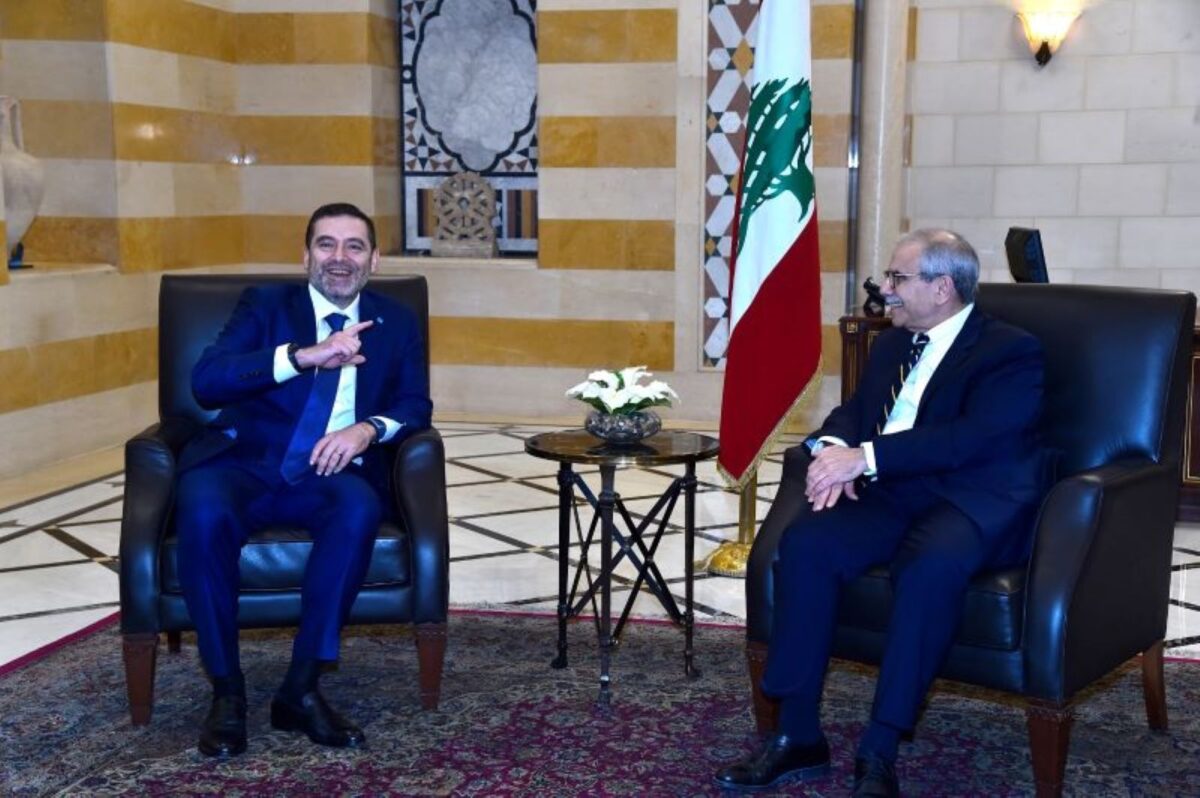
Lebanon is no stranger to political crises, but the brewing crisis within the country’s Sunni community is one that has gone largely unnoticed. With Saad Hariri’s withdrawal from politics, the lack of clear Sunni representation in the new government, and the centralization of power in Beirut, many Sunni-majority rural areas are being pushed further into political orphanhood. This vacuum is not just an internal Lebanese issue—it carries significant regional implications. If left unaddressed, Lebanon risks seeing parts of its Sunni population align more closely with external actors such as Turkey’s Recep Tayyip Erdogan or, in a surprising new development, Ahmad Sharaa (Joulani) in Syria.
A Government That Represents All—But Leaves Some Feeling Unrepresented
Prime Minister Nawaf Salam has made it clear that he seeks to govern as a unifying figure for all Lebanese. This is a noble vision, but it has practical consequences for Sunni political dynamics. By presenting himself as a non-sectarian leader, he has not positioned himself as the de facto leader of the Sunni community. That is not inherently problematic—Lebanon needs leadership that transcends sectarian lines—but in a system where sectarianism remains deeply entrenched, this approach has left a void among Lebanese Sunnis, particularly in rural areas.
Adding to this frustration, some Sunni MPs have openly voiced dissatisfaction with the way the new government was formed, particularly regarding the distribution of Sunni ministerial portfolios. There is a sense among some factions that while the prime minister himself is Sunni, traditional Sunni representation in government is weak or even absent. This perception risks alienating a segment of the population that already feels abandoned by Lebanon’s political system.
The Rise of Alternative Sunni Influences
Without strong leadership advocating for their concerns, many rural Sunnis are looking elsewhere for political and ideological alignment. Two main external actors are filling this vacuum:
- Erdogan’s Turkey: A Growing Soft Power Influence
In northern Lebanon—particularly in Tripoli and Akkar—Turkey has been steadily expanding its soft power. Turkish organizations have provided aid, infrastructure projects, scholarships, and religious outreach. Many in these areas, particularly poorer Sunnis who feel neglected by Beirut, increasingly view Erdogan as a defender of Sunni interests in the region. His rhetoric on Palestine, his role in the Muslim world, and his stance against Western influence resonate with communities that feel left behind. - Ahmad Sharaa (Joulani): An Unlikely Alternative?
The more recent—and more controversial—shift is the rise of Ahmad Sharaa, also known as Abu Mohammad al-Julani, in neighboring Syria. His transformation from an Islamist militant to a de facto leader in Damascus has drawn attention among some Lebanese Sunnis, especially in border areas. While Sharaa’s governance is still untested on a broader scale, his rhetoric of strong Sunni leadership and rejection of traditional Arab regimesmay attract some elements of Lebanon’s disenfranchised Sunni population.
The idea that some Lebanese Sunnis could look to Syria, not just Turkey, for leadership is new and largely unspoken, but it reflects a broader reality: if Lebanon does not provide a political framework that includes all of its communities, those communities will seek alternatives elsewhere.
The Risks of a Fractured Sunni Identity
Historically, Lebanon’s Sunni leadership has been centered around the Hariri family, with strong connections to Gulf states, particularly Saudi Arabia. But with Hariri gone and Gulf engagement in Lebanon reduced, there is no single Sunni leader to rally around. Instead, the Sunni community is becoming increasingly fragmented, with different factions looking in different directions—some toward the Lebanese state, others toward external actors.
This is dangerous for Lebanon’s stability. If Sunnis in Beirut and major cities align with a national, non-sectarian leadership while rural Sunnis feel disconnected from the state, Lebanon could see growing regional disparities and sectarian tensions. Without meaningful engagement, disenfranchised communities could become susceptible to radicalization, external manipulation, or outright disengagement from Lebanon’s political future.
What Needs to Happen?
The government must recognize this issue now before it escalates into a larger crisis. Three key steps can help counteract these growing divisions:
- Decentralized Development
Beirut cannot continue to absorb all economic growth while rural areas—particularly Sunni-majority regions—are neglected. The new government must prioritize infrastructure, education, and job creation outside the capital, ensuring that Tripoli, Akkar, and the Bekaa Valley are not left behind. - Re-establishing National Sunni Leadership
If Salam truly wants to be a leader for all Lebanese, he must engage with his Sunni base more directly. This does not mean reverting to sectarian politics but rather acknowledging the real grievances of the Sunni community and working to reintegrate them into the national political conversation. - A Shift in Political Priorities
Instead of relying on temporary fixes, Lebanon must build a long-term vision for Sunni representation that is not tied to external actors. This includes engaging civil society, religious institutions, and emerging Sunni political figures to create a new, domestically rooted leadership that does not depend on regional power struggles.
The Clock is Ticking
The risk is clear: if Lebanon does not act, it will lose parts of its Sunni population to alternative power structures, whether in Turkey, Syria, or elsewhere. Nawaf Salam has an opportunity to change course, but he must recognize that a one-size-fits-all approach to governance will not work in a deeply divided Lebanon.
Ramzi Abou Ismail is a political psychologist and researcher at the University of Kent.
The views in this story reflect those of the author alone and do not necessarily reflect the beliefs of NOW.








